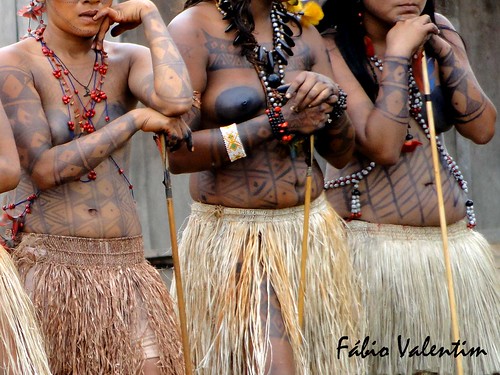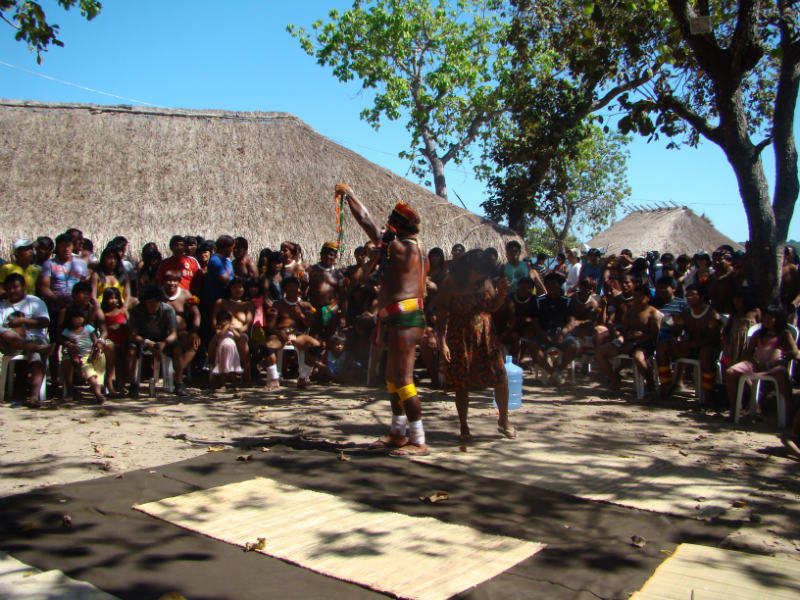 The Kaiabi (Kayabi, Kajabi, Kayaby, Caiabi, Cajabi) are an indigenous people inhabiting the northern Brazilian state of Mato Grosso, more precisely in the Xingu Indigenous Park and the Apiaká-Kayabi Reservation south of Pará. The Kaiabi speak the language of the Tupi-Guarani family. They have a population of 1,619 (in 2006).
The Kaiabi (Kayabi, Kajabi, Kayaby, Caiabi, Cajabi) are an indigenous people inhabiting the northern Brazilian state of Mato Grosso, more precisely in the Xingu Indigenous Park and the Apiaká-Kayabi Reservation south of Pará. The Kaiabi speak the language of the Tupi-Guarani family. They have a population of 1,619 (in 2006).
The Kaiabi have vigorously resisted the invasion of their lands by rubber companies since the end of the 19th Century. After the 1950s, the region of the Arinos, Peixes and Teles Pires rivers was divided up into glebes that became ranches and the Kaiabi were divided into three groups. Most moved to the Xingu Indian Park, where they are outstanding for their practice of a strong and diversified agriculture, their art which is characterized by complex graphic designs inspired by their mythology, and by their active participation in the indigenous movement organized in defense of the interests of the ethnic groups of the Park.
You can learn more about the Kaiabi at socioambiental.org


